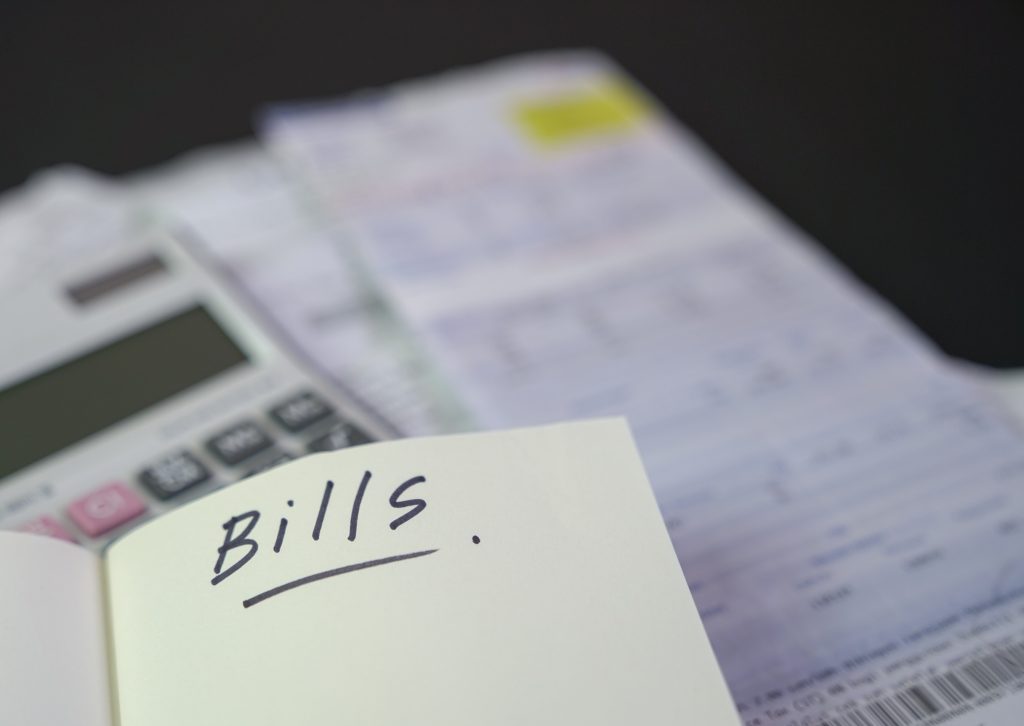
When a loved one passes away, the bereaved family is left to navigate a maze of emotional and financial responsibilities. One of the most pressing concerns is settling the deceased’s outstanding debts. While it’s a common misconception that all debts are inherited, the reality is more complex. Certain types of debt are tied specifically to the individual and may become essentially unpayable upon their death, meaning creditors cannot pursue family members for payment. Understanding which obligations fall into this category can save a grieving family from unnecessary stress and financial burden. This knowledge is a critical part of managing a loved one’s final affairs.
1. Credit Card Debt
In most cases, credit card debt belongs solely to the person whose name is on the account. When the cardholder dies, the credit card company can file a claim against the estate for the outstanding balance. However, if the estate has no money, the debt is typically written off by the lender. Family members, including spouses, are not personally liable for the deceased’s credit card debt unless they were a joint account holder. This makes individual credit card balances one of the most common unpayable bills after death.
2. Federal Student Loans
The federal government offers a significant protection for student loan borrowers. If a borrower with federal student loans dies, the government will discharge the remaining debt entirely. A family member or representative simply needs to provide a certified copy of the death certificate to the loan servicer. This policy prevents the financial burden of education from being passed on to the family. It is a compassionate and crucial policy for many American families.
3. Personal Loans
A personal loan, also known as an unsecured loan, is granted based on the borrower’s creditworthiness without any collateral. Similar to credit cards, if the person who took out the loan dies, the lender can make a claim against the estate. If the estate is insolvent or lacks the funds to cover the balance, the debt dies with the person. Relatives are not required to pay off the loan from their own pockets. These often-become unpayable bills that lenders must absorb as a loss.
4. Medical Bills
Medical debt is the responsibility of the deceased person. Hospitals and other healthcare providers can seek payment from the estate, but not from the family members personally. Given the high cost of end-of-life care, it’s common for medical bills to exceed the value of an estate. In these situations, the remaining debt is discharged. This protection is vital, as a serious illness can generate overwhelming medical expenses.
5. Payday Loans
Payday loans are high-interest, short-term loans that are also unsecured. When the borrower dies, the obligation to repay falls to their estate. Due to the nature of these loans, many borrowers have limited assets. If the estate cannot cover the amount, the payday lender cannot legally pursue family members for the money. These loans are another example of debt that frequently becomes unpayable.
6. Certain Business Debts
If the deceased was a sole proprietor, their business debts and personal debts are treated as one and the same. Creditors can make a claim against the estate to settle any outstanding business loans or bills. However, if the business was structured as a limited liability company (LLC) or a corporation, the owner’s personal assets are generally protected. In that case, the business’s debts would be paid from the business’s assets, and if those are insufficient, the debt may go unpaid.
7. Utility Bills in the Deceased’s Name
Utility bills, such as for electricity, water, or cable, that are solely in the deceased’s name are the responsibility of the estate. The estate should pay the final bills from its funds. If there is no money in the estate, the utility company cannot force the family to pay for services used by the deceased. The family would only be responsible for charges incurred after the date of death if they continue to live in the residence.
8. Social Security Overpayments
It sometimes happens that a Social Security check is issued for the month of a person’s death. Since eligibility for Social Security ends upon death, that payment is considered an overpayment. The Social Security Administration will seek to have the funds returned from the estate. However, if the estate is empty and the funds have been spent, the family is generally not liable for repaying it, making it one of the more surprising unpayable bills.
9. Certain Tax Debts
While the estate is responsible for filing a final tax return and paying any taxes owed, there are limits. If the estate’s assets are insufficient to cover the tax liability, the IRS cannot always collect the remainder from the family. The exception is if a family member was a joint filer or is a transferee of assets. Otherwise, the remaining tax liability can become an uncollectible, and therefore unpayable, debt.
Understanding Financial Finality
Navigating the financial aftermath of a death is a daunting task. Knowing that not all debts transfer to the family can provide significant relief during a difficult time. While creditors have the right to seek payment from the deceased’s estate, they cannot, in most cases, pursue relatives for unpayable bills. This distinction is a cornerstone of consumer protection law, ensuring that grief is not compounded by an inherited financial crisis.
Were you surprised by any of the bills on this list? Share your thoughts or experiences with settling a loved one’s estate in the comments.
Read More:
Not Just About the Bills: 7 Ways Money Messes with Your Relationship
6 Innocent Gestures That Legally Make You a Caregiver
The post 9 Bills That Become Unpayable the Moment Someone Dies appeared first on Budget and the Bees.







